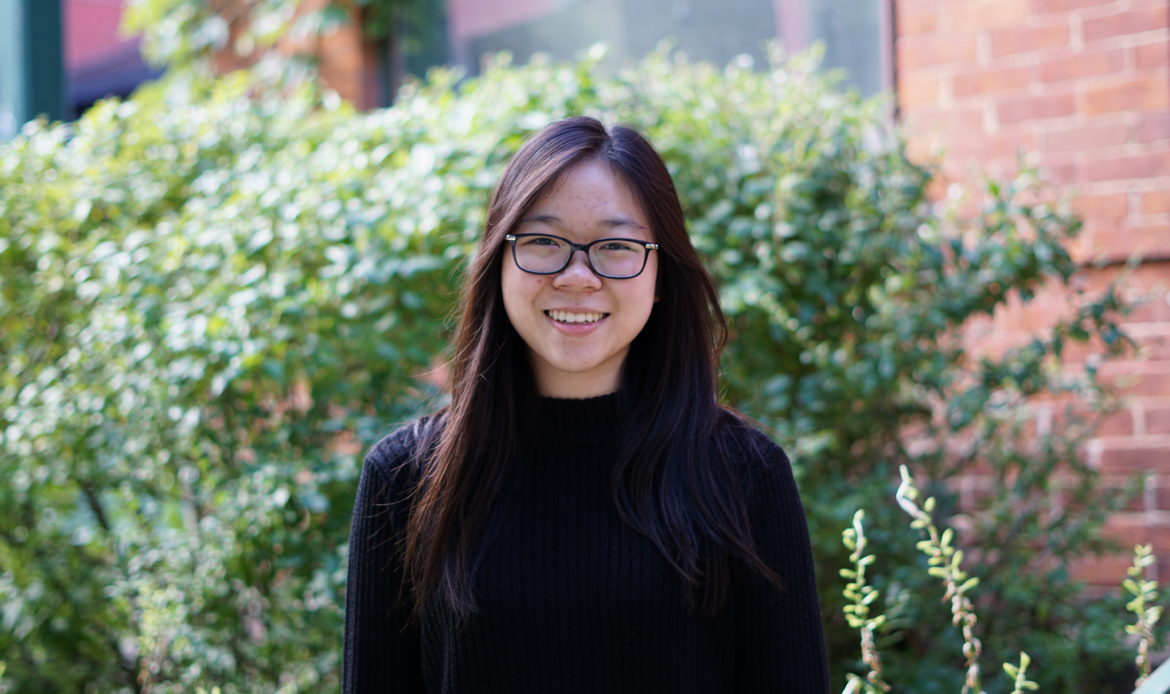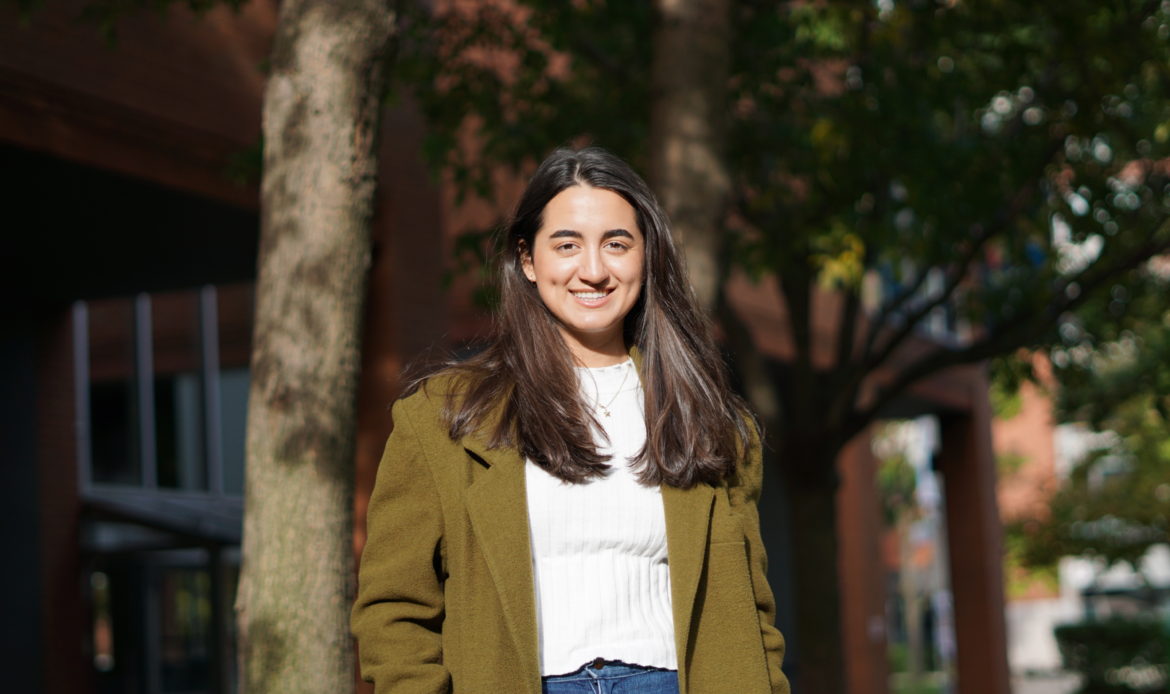Innis Takes on the Student Choice Initiative
As the last academic year drew to a close, students stepping into positions of leadership across U of T and Ontario did so with a sense that they would be charting unknown territory. On March 29, 2019, the provincial government announced its official guidelines for what it called the Student Choice Initiative (SCI). The SCI mandated that students should be able to opt out of university fees deemed ‘non-essential’. As a result, student groups and societies offering services and programming failing to qualify as ‘essential’ have had to reckon with unprecedented funding unpredictability.

Nancy Zhao, President of the Innis College Student Society (ICSS), was elected to office a week before the guidelines were released and her council hit the ground running with plans to respond: “From the start of our terms, [the SCI] was a big thing on all of our minds. Because the policy made some changes in funding structure and how we receive student fees, we had to change the way that we would budget for portfolios and events throughout the year.” As Innis College’s broadest student-led organization, the amount of funding the ICSS receives has a far-reaching impact across the college. “We support a variety of initiatives at Innis… the Innis Herald, CINSSU, and a variety of Innis Clubs.”
The ICSS’s fall opt-out results, while still posing a challenge, were not what Zhao braced herself for. “We had various fee lines. From those our average opt-out rate was around 25, 26 percent,” which was lower than expected. With this, cuts certainly do need to be made and will be discussed at an upcoming budget meeting. “We really hope that we can maintain the quality of what we provide, and that students can still enjoy the events and everything that we’ve provided in the past and have that continue this year.”
Her sense of optimism and determination to work with the numbers are intertwined with hours of preparation and advocacy. “Especially with Innis, it’s such a tight knit community and we wouldn’t want any of these funding changes to affect how that community is fostered.” She cited the Choose U of T campaign as one avenue of raising awareness around the ICSS’s value and was involved in some Innis-specific awareness efforts as well.

Josie Meza-Silva previously helmed the social portfolio for the Innis Residence Council (IRC); she now serves as the president. She noted that the council’s biggest goal “is to make [residence] feel like a home,” but constitutionally, it exclusively serves fee-paying students. Understandably, the introduction of the opt-out system complicates this, as the council is not privy to information regarding which students opted out of their fees and which paid their fees. “We’re gonna try to make different constitutional amendments to support those students who can’t afford [to opt in], because I don’t think anyone should be excluded for any reason.”
As a residence council, Meza-Silva and her team have seen the SCI play out differently than many other student organizations. Having been informed with a week’s notice that IRC fee payments would be administered alongside residence fees on the ROSI portal in April, she was left nearly no time to prepare. “A lot of other residence councils [had] this issue as well, because we thought we had September to start planning for everything.” Though this left her nearly no time to advocate, it has come with its advantages: “The IRC’s actually not affected by the second opt out period [which runs from November to January]. We’re lucky in the sense that everything was done all at once in April. We have our for-sure numbers now.”
“We’re also opening up an opt-back-in session [in] the lobby, because a lot of students reached back out to us and said, ‘Hey, I didn’t know that this is what you guys do and we actually want to opt back in.’”
In navigating the expansion of the IRC’s constituency, the council has had to make some difficult considerations. “A lot of our money also comes from previous years where students have paid the IRC fee,” Meza-Silva says. As a result, her council has determined that those who opted out will not be eligible to run suite events using IRC money. “So if you haven’t paid the fee, you’ll be able to participate in any event that you want, but when it comes to reimbursement,– that’s the only stipulation we’re gonna have.” In addition to this, ticket discounts for events like semi-formal will only be applied to paying members.
Students will not be the only ones affected by the budgetary changes caused by the SCI. The Cinema Studies Student Union (CINSSU) is best known for its Free Friday Films, which run out of the Innis Town Hall and are open to the public. “I’m sad,” said CINSSU president Tara Suri, “because the first month was a very successful month and we have to cut back now, even… filling [Town Hall] almost every week.”
“The reality did not quite set in for a lot of our executive members until we saw the opt-out results…when I sat down with the group and told them that we lost a third of our budget, there was a very significant change in the mindset of the group. When we came together in June, we were very excited to plan this year.” She adds, “We have this deep desire within our community to expand, and it’s happening at a time when we have to pull back.
“We used to start out the year with a very clear budget and a very clear plan and there was no stress involved. There is a palpable sense of stress amongst the group now.”
She highlights that between securing rights, prints, and the venue, showing films is incredibly expensive. “Events that meant something to the students here and are part of our legacy had to be cut to maintain the core of our programming, the Free Friday Film. And we need to keep that free, because that’s a big part of our legacy here.”
Among many organizations, there is a pervasive element of uncertainty that has driven student organizations to plan beyond their term. Meza-Silva mentioned a contingency plan for the IRC that will see successive years budgeted for; Zhao has plans to continue raising awareness of the ICSS’s value for future terms, and hopes to look into reasons students opt out.
“How much of our savings do I spend this year to keep the boat floating? And what happens if we get cut even more this year?” Suri asks. “There’s a sense even amongst members of the public … that things are changing and this reliable community element might not be [like] this forever. This year, we are able to compensate a little bit from our savings, but… they’ll only last for a year or two, and once the savings go we have nothing to fall back on. That absolutely will mean cutting back more films and more events than we already have if things don’t change.”
“It feels like we’re living in a time where all these things that we work towards and that we’ve grown to love as a community have disappeared.”

Among the three student groups represented, CINSSU has lost the largest portion of its funding and Suri’s frustration is clear. “It’s not really even up to the students in a way… with OSAP getting cut simultaneously, it almost felt like students were being forced to choose not to support groups that they love and enjoy. I have a deep appreciation for how expensive attaining an education in this province is, and how hopeless it can feel. And when you put people in that position, they don’t always get to choose based on what they want. It’s based on what they can physically make possible for themselves. It’s called the Student Choice Initiative, but it doesn’t really give students a choice.”
Zhao likewise acknowledged this: “We understand that some students are in a position where they aren’t able to pay for these additional fees.”
To Suri, “Part of what makes U of T such a special school is its integration within the city of Toronto which has so many opportunities… groups like CINSSU can offer [a] sense of community and sense of connection to the wider city simultaneously. You’re able to take advantage of what Toronto has to offer without feeling like you’re alone in it.”
“When you cut back to just bare-bones academics, you’re leaving students with a sense of loss. Being an academic achiever is a multifaceted experience…There’s a sense of confidence and belonging that is necessary in engaging academically in a school that is this rigorous and can seem so daunting.”
Meza-Silva’s words sum up the sentiment well: “[The SCI is] hurting students right now. It’s hurting a lot of different communities and groups on campus.”
Understandably, student leaders’ responses to the SCI have leaned towards the negative, but Zhao, Meza-Silva, and Suri were all able to draw some hope from the situation. Zhao feels that the lower-than-expected opt-out rates indicates that students do value the ICSS’s services. “We’re really glad that we’re receiving this much support already, and we really hope that that can continue into future terms. And we hope that student organizations can continue to thrive despite all these policy changes around their fees.”
In a similar vein, Meza-Silva looked to the IRC’s lower-than-expected opt-out rate as a cause for optimism. “19 percent… that’s really amazing and more than we even hoped for.”
Suri is glad to see a continued environment of inclusion on campus, despite the potential for a divide between those who paid fees and those who didn’t. As well, she’s proud to have witnessed such resilience in the U of T community’s SCI response. “I am seriously impressed by the work that I’ve been seeing across campus. It’s brought me closer to some student leaders I probably wouldn’t have interacted with otherwise… [I] bonded with them over how frustrating this whole experience has been.”
“There’s a silver lining in that.”
